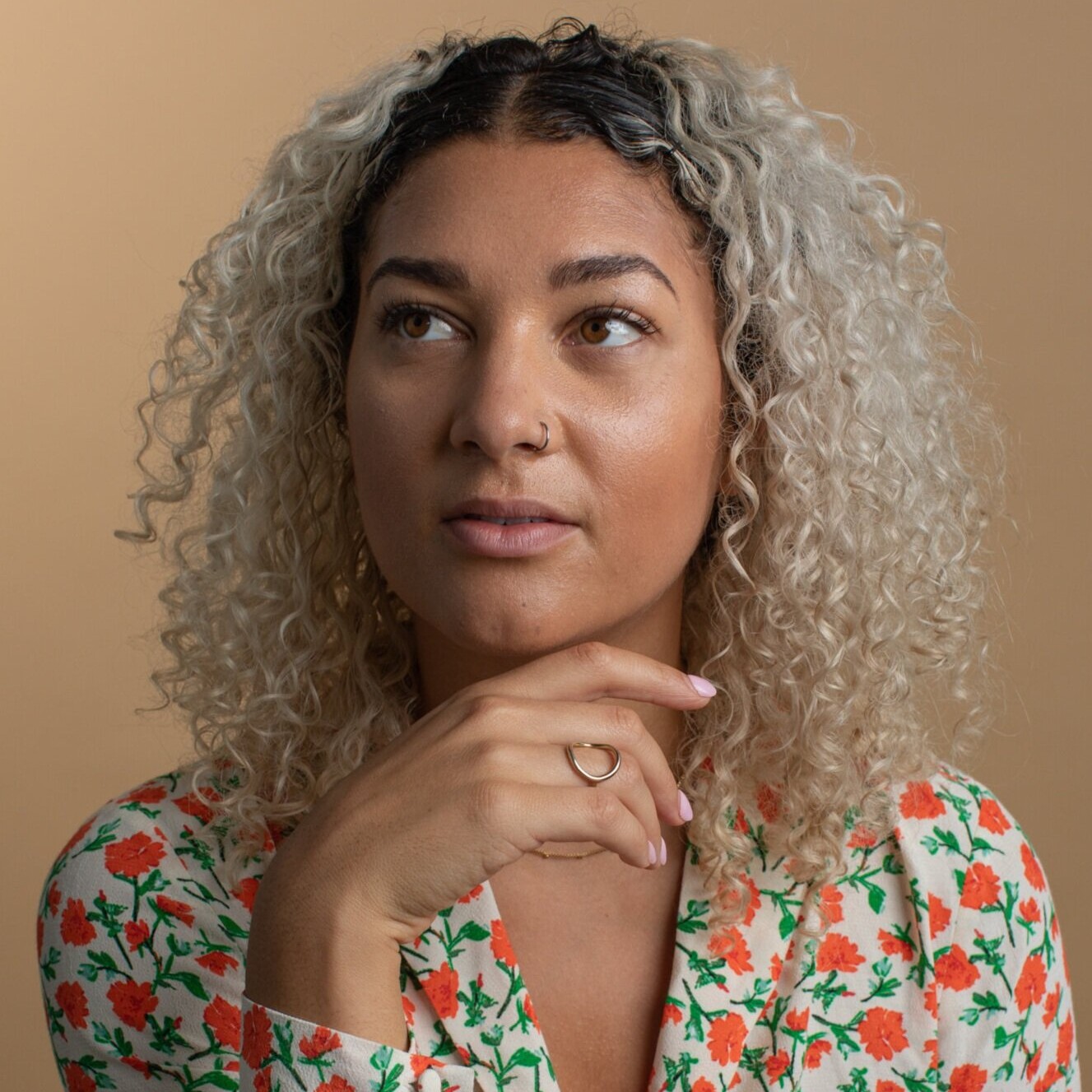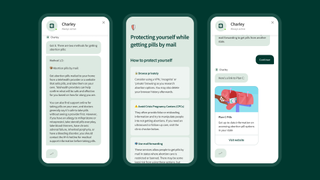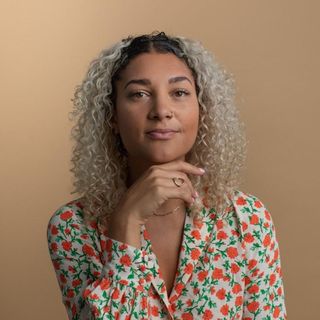

Kiana Tipton is the Executive Director of Charley, a private and secure abortion chatbot that provides up-to-date and accurate information about women's options in every zip code in the U.S. It was created last September, and developed in response to state abortion restrictions after the overturn of Roe v. Wade in 2022.
It's important to note that chatbots are far from perfect; it's an evolving field where many bots have been found to reflect biases and inaccuracies due to the data on which they are trained. And creating a chatbot in the complicated landscape of reproductive rights in America, where restrictions continue, calls for users to still exercise caution. The creators of Charley state that "while users should feel safe using Charley to do research and get more information, users should practice private browsing habits by removing the page from their browser history or using incognito mode."
On the 51st anniversary of Roe, Tipton outlines the realities of reproductive rights in the country, and how intentional tech will still play a pivotal role in equitable and safe access to abortions, especially for women living in states where abortion bans continue to escalate.
I was 20 the first time I helped a friend get an abortion. We were in college in Texas, and after separating myth from fact online, navigating legal restrictions that felt deliberately difficult and confusing, figuring out where she could go for care, and scraping together the money to pay for that care, the process of getting an abortion seemed much harder than it should have been.
That was before Texas’ draconian abortion ban went into effect, before the Supreme Court overturned Roe v. Wade and ended 50 years of a national right to legal abortion. This week marks what should have been the 51st anniversary of Roe, with 25 million women of reproductive age living in states that raced to ban or severely restrict abortion since the Court’s ruling, I’m haunted by one thought: If my friend and I were in the same situation today, what would we do?
Since Roe was overturned, online searches for information about abortion have surged. Abortion seekers are desperately looking for answers to urgent questions: How do abortion pills work? Where can I get an abortion? What’s legal where I live? How much will it cost? Between the constantly changing legal landscape of new abortion bans and restrictions, justified fears of digital surveillance, and disinformation running rampant, trying to find even the most basic information can be overwhelming.
Charley, a private, secure online chatbot, was built in the post-Roe era to meet critical reproductive healthcare needs and provide personalized, accurate, up-to-date information about abortion options (whether it be abortion pills by mail, a procedure, or care in another state).
Stay In The Know
Marie Claire email subscribers get intel on fashion and beauty trends, hot-off-the-press celebrity news, and more. Sign up here.

So how did it start? After Roe was overturned, Charley cofounders Cecile Richards (former president of Planned Parenthood) and Tom Subak (a social impact leader) set out to learn more about the needs of abortion seekers, especially in banned and restricted states. After six months of field research and expert interviews, they created the rapid response tool post-Roe. For the design phase, they teamed up with reproductive health experts and abortion advocates including INeedAnA.com, Plan C, and the Miscarriage + Abortion Hotline.
The resulting chatbot, Charley, offers users (who remain completely anonymous) expert advice that fights misinformation. The bot has reached 17,000 users since its launch last September. And the number one location for Charley users? It’s Texas, followed by Florida.
Even before Roe v. Wade was overturned, I saw how a system, built without equity in mind, presented numerous barriers to access. Sadly, my experience with my friend wasn’t unique: Abortion bans disproportionately hurt underrepresented groups: people of color, people with low incomes, young people, and immigrants—many of the same groups that already have the hardest time accessing health care. While driving or flying hundreds of miles to the closest state where abortion is still legal may be the best option for some, others face enormous hurdles: the challenges of finding childcare and taking time off from work or school, the cost of gas or a plane ticket on top of the cost of a procedure, the risk associated with travel if you’re undocumented.
Over the last year and a half, people all over this country have been confronted with the heartbreaking impact of losing Roe. The stories are straight out of a dystopian nightmare; I can’t stop thinking about Yeniifer Alvarez-Estrada Glick, a young woman in Texas who would almost certainly be alive today had she been offered abortion care. Like so many other Black women, I was heartbroken but not surprised to witness the pain and grief of Brittany Watts, prosecuted for having a miscarriage in Ohio. That we’re celebrating the fact that she won’t be charged with a felony is a sad commentary on where we are as a country. These stories are increasingly the norm, not the exception.

Kiana Tipton, executive director of Charley.
At the same time, I’ve been blown away by the resilience and creativity of young people who are taking the lead in the movement for tech's role in reproductive freedom. They've harnessed the power of innovation to build community with like-minded peers; share their stories, hopes, and ideas; and call their communities to action. Spend a few hours scrolling on TikTok or Instagram and you’ll see brave storytelling, networks of activists working hard to connect people to care, and grassroots efforts to shatter abortion stigma and reinforce the truth: Abortion is safe, normal—and no matter what the Supreme Court says—it is your fundamental right.
As is the case for so many social causes throughout history, young people are leading today’s abortion rights movement, and unapologetically empowering people with the knowledge they need (including guidance on how to get pills in the mail) to make the choices that are best for them. We believe abortion seekers seek resources and facts, not because they’re downtrodden and helpless, but because they’re defiant and determined to get the information they know they deserve.
Kiana Tipton, based in New York, United States, is currently a Executive Director at Chat With Charley, a new chatbox helping women access safe and secure abortion resources.
-
 Anne Hathaway Says Online Vitriol from 'Hathahate' Cost Her Acting Roles
Anne Hathaway Says Online Vitriol from 'Hathahate' Cost Her Acting RolesMeanwhile, as so many are, she was struggling through loss that she didn't speak about as the trolls piled on.
By Meghan De Maria Published
-
 39 Items That Increased My Screen Time This Week
39 Items That Increased My Screen Time This WeekSpotted in my daydreams.
By Aniyah Morinia Published
-
 Katie Holmes Cracks the Commuter Outfit Code
Katie Holmes Cracks the Commuter Outfit CodeHer relatable wardrobe staples strike again.
By Lauren Tappan Published